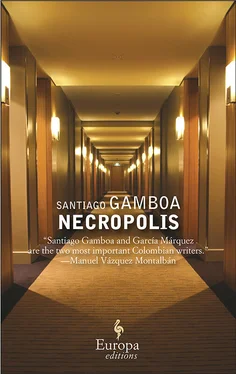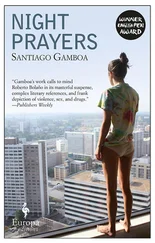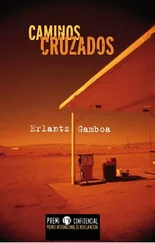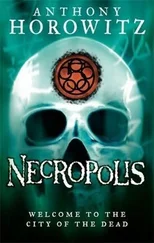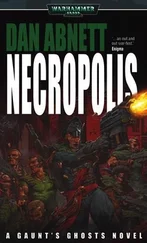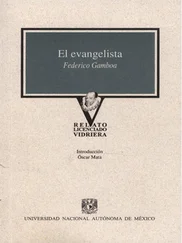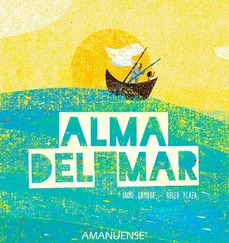Supervielle and Kosztolányi were also looking at her.
She’s a catlike, dangerous woman, said Kosztolányi before taking a big slug of his whiskey, but you can’t imagine the talks she gives, they’re real performances, with photographs and animations, I was at a conference similar to this in Stockholm and the fact is, her contribution was fantastic, don’t you remember, dear Edgar? Supervielle said, yes, although I must confess that her aggressive style bothers me, without wishing to be critical, I know it corresponds to a way of life that’s very widespread in all cultures and it’s useful that she’s among us, which does not prevent one from feeling somewhat. . how can I put it? remote from it all, yes, that’s the word. Then they remembered an occasion when Sabina Vedovelli (was it in Seattle or Bucharest?) had appeared with a tiger cub, which had aroused a mixture of admiration and fear in the audience.
Listening to them, I realized that most of them had been at other conferences together, and I asked them, do you all know each other? to which Supervielle replied, well, the ICBM is new and this is its first conference, but we’ve met at similar events. Kosztolányi added, those of us in the trade have periodic meetings, more or less once every two years, I can understand your surprise, I don’t know what writers’ conferences are like. They both looked at me, so I said, writers’ conferences are usually on a specific theme that’s sufficiently vague for everyone to fit in, things like The Writer and the New Century or Where is Literature Going? and, well, once the group is together there’s an opening reception similar to this one, and then the round tables start; some people bring written texts and read them and others improvise, depending on their experience, and the members of the audience applaud and get quite excited because the only reason they’re there is that they’ve read the authors’ works or have heard of them, and at the end of each session they come up and ask for autographs and dedications, anyway, it’s all a bit mechanical. At night, some writers set off on the prowl looking for young female readers or women delegates, and it’s normal to see them in the bars and on the terraces, making passionate speeches about themselves or their books, enthusiastically telling anecdotes in which they, with all due modesty, appear as heroes or even superheroes and their books as outstanding masterpieces of modern culture. Others prefer to stay in their hotel rooms watching TV channels like MTV or Discovery so that they can then talk about them with scorn at dinner, when what they’re actually saying is, I don’t mix with you, you lousy bunch, I’m above all that, thereby creating an aura of respectability and mystery about themselves. There are also those who devote their time to drinking and forging closer ties that will allow them to obtain invitations to other conferences, and so some colleagues are able to go from one conference to another and spend the whole year traveling, giving interviews from which literary matters are usually rather absent, either because they’re talking off the tops of their heads or because what they really want to create is some kind of political controversy, and so the writers sound off, taking sides and making accusations, ensuring themselves a great deal of visibility in the press, which records their invectives in banner headlines, and if the writer in question is lucky enough to be contradicted by some political or ecclesiastical authority, things really start to heat up, giving rise to a juicy polemic that increases their fame, and other writers jump on the bandwagon to support that first writer, because if the controversy is big enough there’ll be enough left over for them, too, although, of course, the first writer wants to protect the fame he’s acquired, he doesn’t want to lose it to opportunists, and so, in the end, his books will sell more copies and the polemic will have given the event a contemporary, committed, and cosmopolitan air, which benefits everyone and will undoubtedly ensure that the banks and the financial or political organizations that sponsor them want to continue supporting them, even if one of those organizations was the very one that was being criticized or insulted.
On the last day, the historic achievements of the conference are proclaimed, both from a libertarian point of view, and in generating pure concepts and ideas, and a great final binge is held at which everyone swears friendship and respect and at which traditionally, in spite of the fact that each person knows that he is the best, everyone praises everyone else, saying things like this, “You’re the greatest living storyteller since Cervantes, or Borges, or the best poet since César Vallejo,” to which the other replies, “Oh no, don’t exaggerate, that’s going a little bit too far,” they exchange quotations from books, and raise their glasses, and usually, by the time dawn breaks, there are already two and even three Nobel Prize winners at each table, depending on the amount of alcohol they’ve imbibed, including some who swear they’ll refuse it if it’s offered to them, because it’s a disgrace that they never gave it to Borges, which means it’s worthless, all these vows made on a great tide of whiskey, before they rush to the bathroom to throw up.
Kosztolányi and Supervielle looked at me in surprise, and Kosztolányi said, my God, you don’t have a very high opinion of your colleagues, but I hastened to say, don’t take all this literally, one always criticizes one’s profession, but the truth is that I’ve also attended excellent conferences in which people talk seriously; nor did I say I wasn’t myself one of the writers I was talking about. For years all I ever did was go to conferences.
After her triumphant entrance, Sabina Vedovelli had settled elegantly in the middle of the room as if she was in her own home. A tray of drinks was brought to her. With two fingers, she picked up a glass of champagne and raised it to her lips slowly and with great relish, as if instead of a glass container it was a fruit or a delicious ice cream or even a penis, and I could not have been the only one to think that, seeing that several men, including the main speaker, cleared their throats and shifted nervously.
Suddenly somebody clapped a hand on my shoulder, and when I turned I almost fell to the floor in surprise, it was my friend Rashid Salman! In the second it took me to open my arms and receive him I remembered evenings in Rome with him and his movie associates, barbecues at a cultural festival in Damascus, and encounters in Berlin and Oslo, as well as his novel Arab Sunsets , translated into many languages, in which he recounts his own life as a young Israeli Arab educated in a Jewish school, and the contradictions and humiliations of that situation, and in the same second I thought, how on earth could I have forgotten that Rashid lived in Jerusalem? how come that wasn’t the first thing I thought of when I arrived in this city?
My friend, he said, I saw you on the list of delegates and was starting to wonder where on earth you were! I’ve been in the room for more than an hour thinking, if he hasn’t changed, sooner or later he’ll come to the bar for a drink, and I was right! I know you’ve been sick, how are you now? Very well, I said, back on form, as you can see, happy to be here and embarrassed that I didn’t look you up earlier, but I only arrived this afternoon.
Our previous encounter had been five years earlier in Vienna, yes, Literature on the Frontier , that was it. He had gained weight and his hair was very short, like an adolescent’s, an image reinforced by his pink Converse tennis shoes combined with his linen suit and his tie knotted below the second button of his shirt. His face was still the same, a huge smile and two cross eyes, like planets floating in the middle of a storm. I could tell by the way he spoke and waved his hands in the air that he had already drunk quite a bit. This is going to be a really special conference, he said, like nothing you’ve ever seen before, I can guarantee you that! So I asked, are you referring to the war that’s going on outside? and he said, no, that’s the least of it, there’s always been war here, I’m referring to the helplessness, the profound solitude that infects this region, even though it’s in the eye of the hurricane, but come, actually I was referring to something more serious, which is that this hotel has the best bar in the Middle East, let’s go fill our glasses, what are you drinking?
Читать дальше
